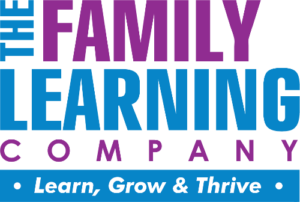Family Learning

The article underscores the significance of family engagement in literacy activities for children's educational success. Guthrie and Humenick's meta-analysis highlights collaborative learning's motivational impact. Denny Taylor's research emphasizes children's motivation to read within their family units, not solely for broader knowledge. Family learning, treating the family as the foundation for a child's education, proves powerful, positively affecting children's achievement, language skills, and even health. Parental involvement in literacy practices greatly influences reading skills, academic success, and cognitive competence, surpassing socioeconomic status effects. The compelling evidence stresses parental engagement's crucial role from early childhood to adolescence, portraying it as a vital factor in a child's academic achievement.
Human beings are social learners. In a meta-analysis of studies investigating instructional practices that enhanced motivation for, and engagement in, reading, Guthrie and Humenick identified “opportunities to collaborate with other students in discussion and assignment groups to achieve their learning goals.” [Guthrie, JT, Motivating students to read: Evidence for classroom practices that increase reading motivation and achievement. NM Humenick, The voice of evidence in reading research, 2004] In her seminal three year study of learning in families, Denny Taylor concluded that children are motivated to learn to read to participate in their family unit, not to access knowledge in the wider world. [Taylor, D., Family literacy : young children learning to read and write. Heinemann, Portsmouth, NH ©1998] Family learning is an approach to intergenerational learning. It acknowledges the family and its culture as the foundation of learning for the child. Family literacy recognizes the parent as the child's first teacher. According to Ruth Nickse’s early descriptions of family literacy programs, intergenerational and family programs retain adult students longer, enhancing adult outcomes. [Nickse, Ruth S., Family Literacy Programs: Ideas for Action. Adult Literacy, Volume: 1 issue: 5, page(s): 9-28, February 1, 1990.] And parental literacy predicts the literacy achievement of their children. Family learning is powerful. For example, children who participated in the High/Scope family learning program at ages 4 – 8 grew up to have fewer criminal arrests, higher earnings, more accumulated wealth and stronger marriages than those who didn't. [William Raspberry, The Denver Post, July 25, 1993] The motivation to attend family literacy programs is high, as participants come to these programs to improve life for their families, not solely themselves. Participants want to increase their educational levels and learn job skills, but they also want to be more effective parents. [Ibid] There is also a synergy that exists in family literacy programs that is not found in programs that work with children or adults separately. [Anderson, Jean E., Families Learning Together in Colorado: A Report on Family Literacy. Colorado State Dept. of Education, Denver. Office of Adult Education, 1994.]
The research shows a wide range of measured benefits for all participants in family learning programs [Padak, N & Rasinski, T, Family Literacy Programs: Who Benefits? Ohio Literacy Resource Center, Kent State Univ., 2003.]:
- Children's achievement in school improves
- Children's general knowledge, including that measured by intelligence tests, improves
- Children's oral language development accelerates
- Children's phonemic awareness and decoding ability improves
- Children's reading vocabulary improves
- Children's comprehension improves.
- Children's writing improves
- Children's math and science achievement improve
- Children's social skills, self-esteem, and attitudes toward school improve
- Children are healthier
- Children's motivation to read increases
Measured benefits for parents in family learning programs:
- Parents persist in family literacy programs longer than in other adult literacy programs
- Parents' attitudes about education improve
- Parents' reading achievement increases.
- Parents' writing ability improves and their math and science knowledge increases.
- Parents' knowledge about parenting options and child development increases
- Parents' social awareness and self-advocacy increases
- Parents enhance their employment status or job satisfaction
- Parents and other family members become more involved in schools. Measured benefits for families from family learning programs:
- Families become emotionally closer which creates a more supportive home environment
- Families read more and engage in more literate behaviors at home
Why should parents become involved in their children’s literacy activities? The evidence about the benefits of parents being involved in their children’s education in general, and their children’s literacy activities in particular, is overwhelming. Research shows that parental involvement in their children’s learning positively affects the child’s performance at school [Fan, X. & Chen, M. (2001). Parental Involvement and students’ academic achievement: A meta-analysis. Educational Psychology Review, 13, 1-22.] in both primary and secondary schools, [Feinstein, L. & Symons, J. (1999). Attainment in secondary school. Oxford Economic Papers, 51, 300-321.] leading to higher academic achievement, greater cognitive competence, greater problem-solving skills, greater school enjoyment, better school attendance and fewer behavioral problems at school. [Melhuish, E., Sylva, C., Sammons, P., Siraj-Blatchford, I. & Taggart, B. (2001). Social, behavioral and cognitive development at 3-4 years in relation to family background. The effective provision of pre-school education, EPPE project. DfEE: London: The Institute of Education.] Similar impacts have also been identified with regards to literacy practices, including:
- Early reading experiences with their parents prepare children for the benefits of formal literacy instruction. Indeed, parental involvement in their child’s reading has been found to be the most important determinant of language and emergent literacy. [Bus, A.G., van Ijzendoorn, M.H. & Pellegrini, A.D. (1995). Joint book reading makes for success in learning to read: A meta-analysis of intergenerational transmission of literacy. Review of Educational Research, 65, 1-21.] Furthermore, parents who introduce their babies to books give them a head start in school and an advantage over their peers throughout primary school [Wade, B. & Moore, M. (2000). A sure start with books. Early Years, 20, 39-46.].
- Involvement with reading activities at home has significant positive influences not only on reading achievement, language comprehension and expressive language skills, [Gest, S.D., Freeman, N.R., Domitrovich, C.E. & Welsh, J.A. (2004). Shared book reading and children’s language comprehension skills: the moderating role of parental discipline practices. Early Childhood Research Quarterly, 19, 319-336.] but also on pupils’ interest in reading, attitudes towards reading and attentiveness in the classroom. [Rowe, K. (1991). The influence of reading activity at home on students’ attitudes towards reading, classroom attentiveness and reading achievement: An application of structural equation modelling. British Journal of Educational Psychology, 61, 19-35.]
- Parental involvement in their child’s literacy practices is a more powerful force than other family background variables, such as social class, family size and level of parental education, [OECD (2002). Reading for change: Performance and engagement across countries. Results from PISA 2000. New York: Organization for Economic Cooperation and Development.] while reading enjoyment is more important for children’s educational success than their family’s socio-economic status. [OECD (2002). Reading for change: Performance and engagement across countries. Results from PISA 2000. New York: Organization for Economic Cooperation and Development.]
- Of all school subjects, reading has been found to be most sensitive to parental influences. [Senechal, M. & LeFevre, J. (2002). Parental involvement in the development of children's reading skill: A five-year longitudinal study. Child Development, vol. 73, no 2, 445-460. ] In turn, success in reading is a gateway to success in other academic areas as well.[Jordan, G.E., Snow, C.E. & Porsche, M.V. (2000). Project EASE: The effect of a family literacy project on kindergarten students' early literacy skills. Reading Research Quarterly, 35, 524-546.]
- Although parental involvement has the greatest effect in the early years, its importance to children’s educational and literacy outcomes continues into the teenage and even adult years. [Desforges, C. & Abouchaar, A. (2003). The impact of parental involvement, parental support and family education on pupil achievement and adjustment: A literature review. London: Department for Education and Skills.] For example, Feinstein and Symons (1999) found that parental interest in their child’s education was the single greatest predictor of achievement at age 16.
- A meta-analysis [Xin Ma, Jianping Shen, Huilan Y. Krenn, Shanshan Hu & Jing Yuan, 29 December 29, 2015, Springer Science+Business Media New York 2015] examined the relationship between learning outcomes of children and educational involvement of parents during a unique period of early childhood education and early elementary education based on 100 independent effect sizes from 46 studies. Learning outcomes are academic achievement, and frameworks of parental involvement measure family involvement and partnership development. The relationship (with adjustment over frameworks and study features) indicated a strong and positive correlation (.509) between learning outcomes and parental involvement. The role of parents (family involvement) was more important than the role of schools and communities.
Click here to see how family learning plays a central part of Interactive Family Literacy
Here is another article including research on the impact family learning can have.
